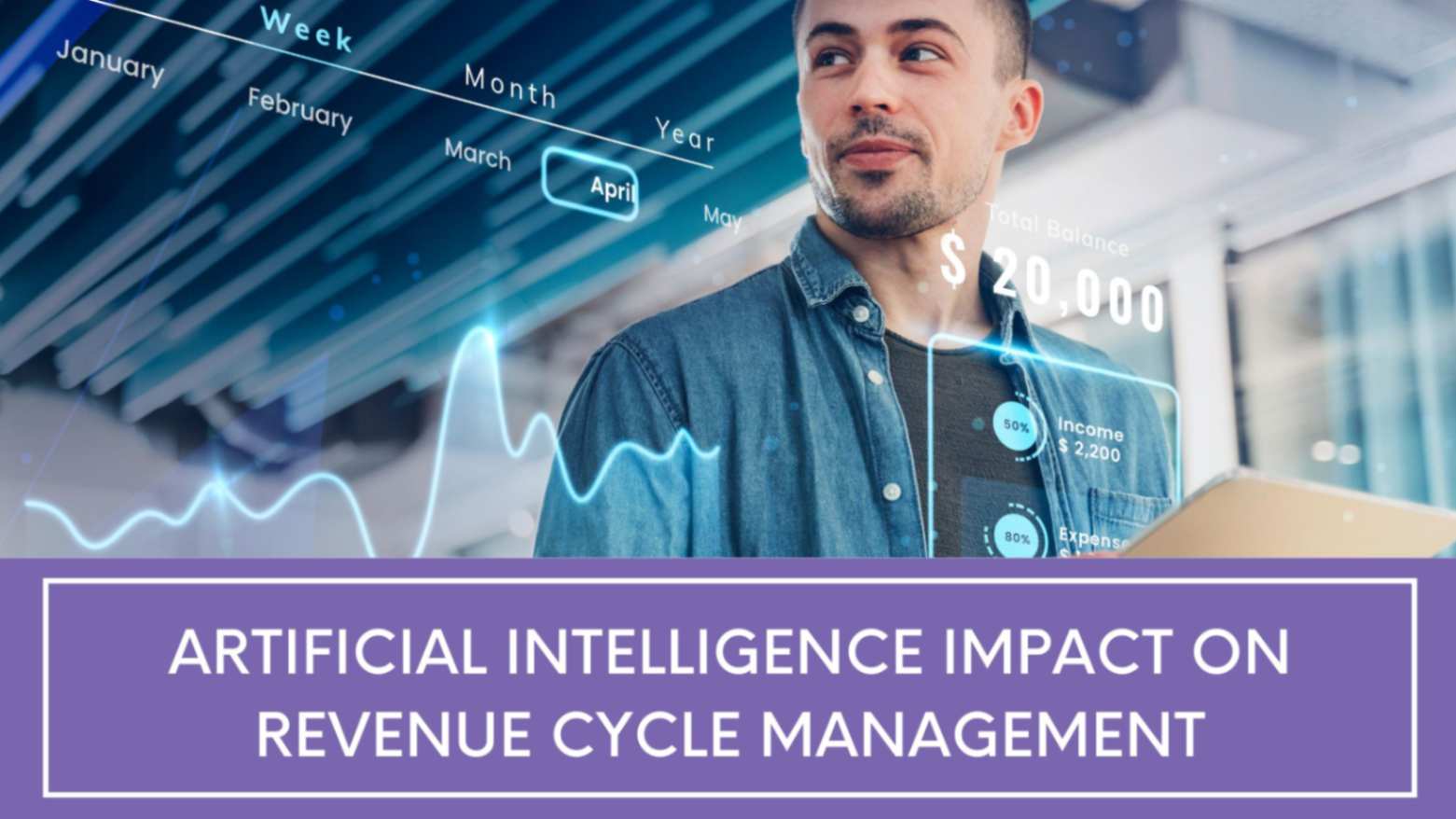Artificial Intelligence Impact on Revenue Cycle Management
Artificial Intelligence (AI) is the current talk of the hour among several other technological innovations and it has become inevitable for industries to embrace AI. Its adaptation is now seen almost everywhere and is ubiquitous in healthcare sector. AI has transformed the way several healthcare processes work, starting from primary care to EHR or telemedicine.
In a recent survey, it was found that a vast majority of healthcare managers have shifted or are planning to shift to Artificial Intelligence in the foreseeable future, and out of this most have considered the shift due to the profitability from automation and its cost-effective approach.
Table of Contents
Artificial Intelligence. What is it?
AI is the process of simulation of human intelligence through machines in order to carry on activities like language processing, machine vision, and such which generally require human involvement.
Healthcare processes are really complex and with frequently updated standards it becomes really difficult for healthcare staff to carry out the processes with complete efficiency and that’s where Artificial Intelligence comes into play. It can mimic most human activities and transactions helping healthcare managers to eradicate human errors thereby increasing revenue and decreasing the number of denial instances
The revenue cycle management consists of several transactional operations at several touch points. Right from patient interaction to obtaining the reimbursed amount, it requires a systematic chain of actions to gather clarity in the process and thereby bring efficiency. AI can flourish in the healthcare environment to obtain, understand, retain, access, learn, perform processes, match providers with patients, and determine out-of-pocket costs.
AI identifies similar variables and applies the correct codes associated and evaluates them to bring in successful outcomes. Let us look into a list of processes in RCM that can be effectively automated with Artificial Intelligence.
Front Office
Front office functions include attaining the right patient information on their out-of-pocket responsibilities and collecting the right amount. Utilizing Artificial Intelligence for this will help successfully carry out the process, and not just that, the practices can also tailor the collection strategies for each patient and also allow them to alert the patients with default plans. Practices can also narrow down the patient list to the ones who would most seemingly revert back. AI has proven its efficiency in doubling the collection rates by helping practices and patients with their finances.
Prior Authorization
Artificial Intelligence can thrive with its application in the prior authorization process in the RCM. With the real-time analytics at its fingertips, AI helps to identify prior authorization instances and sends authorization requests to the respective insurance payers. It effectively takes away the drawbacks that get along with the process, allowing practices to reflect their efficiencies with complete clarity.
The non-standard prior authorization procedures and particular needs, such as forms and associated clinical paperwork, are difficult for human agents to fully comprehend. With a track record of successful payer-specific prior authorization requests, AI can provide the appropriate forms, fill them out, and prompt users to attach the appropriate clinical records. The staff can spend more time on things that offer value thanks to the time saved by automating these tasks, which also improves the patient experience by allowing for quicker access to care.
Medical Coding
Clinical documentation is very complex and staff can get really frustrated while digging up their way into it. Although there are technologies and software that bring in solutions to ease up the processes, it can still be a difficult process and above all that many medical documents are handwritten and the underlying truth might get lost along the way sometimes. The medical coding automation with Artificial Intelligence addresses the clear articulation of codes from the documentation, handwritten, printed, and digital documents.
AI technologies address the challenges of medical coding by integrating with ICD/CPT data dictionaries, unified medical language systems, and optical character recognition. Automated medical coding solutions are undergoing a new wave of acceptance as a result of the development of AI and underlying natural language processing technology.
Payment Processing
The volume of payments that must be manually processed has greatly decreased because a sizable portion of payment transactions are now being received via Electronic Remittance Advice (EDI-based payments). You can post these payments to the appropriate patient account and apply rules to efficiently reconcile them with the aid of an effective AI engine.
Claim Denials
By identifying a claim before it is denied and hence prevent it, practices can leverage artificial intelligence to:
- Identify the payer and CPT code that consistently deny claims;
- Apply this information during automated reviews of claims.
- Marking locations and giving alerts in instances where the information is missing or incorrect, such as missing charges, certifications, or fake patient identification.
- Streamline process to ensure deadlines are met.
Clean claim rates can be raised, and claims can be fixed before submission, thanks to AI. The ability to concentrate on denials with a high dollar value and a greater likelihood of being overturned aids revenue cycle teams.
Predicting the Reimbursement Period
A critical feature of a healthcare institution’s cash flow is time to reimbursement. They can predict the payment dates for each claim by using predictive algorithms. AI can forecast how long it typically takes a payer to respond to a claim by looking at the payer’s payment history.
Follow up time
AI is also now being employed to identify the various denial causes and the best time to follow up. Additionally, the pricey contact centre operations between payers and providers to understand a claim’s status and settlement can be eliminated because payer websites are increasingly providing more information of higher quality and quantity.
Conclusion
Automation Technology and Artificial Intelligence work together to create decisions that are made by the AI engine. We predict that revenue cycle management applications of AI will rise over the coming years. Now that AI-focused solutions are part of the stack, the majority of RCM providers provide them. To hasten their automation journey, we advise hospitals and providers to select RCM partners who have pre-built automation.
For practices to rely on us for their RCM requirements, Practolytics along with AdvancedMD delivers the ideal environment. Medical coding, billing, credentialing, prior authorization, eligibility verification, contract negotiations, and other related tasks are our main areas of focus.
For further queries, reach out to our experts at Practolytics.
ALSO READ – Importance of Preauthorization in RCM
Talk to Medical Billing Expert Today — Get a Free Demo Now!






